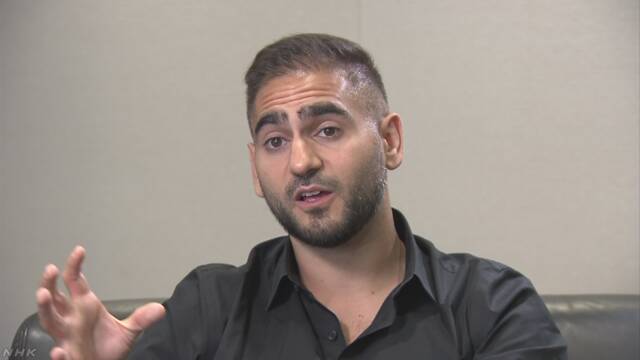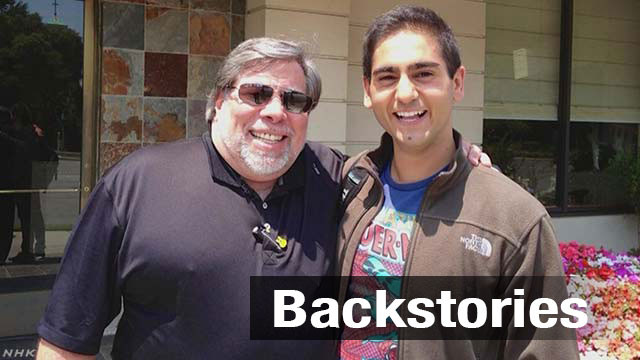A freshman on a “mission”
With the hit of “The Third Door,” Alex Banayan has become the only best-selling business author under the age of 30 in the US. But he was an ordinary medical student when he first thought of writing the book at the age of 18.
Banayan: For my family, education was the pathway to success. And my family was very conservative and very strict. But when I became 18 and I started college, this was the first time I ever started thinking whether I’m on my path, or I’m on a path somebody placed me on and I’m just rolling down. So this created a ton of tension and fear. And I was too afraid to talk to my parents about this so I just started reading books, looking for answers.
But eventually I realized that there wasn't one book that answered all of my questions. And that's when my very naive thinking kicked in and I thought, “Well… no one's going to write the book I’m dreaming of reading, so why not write it myself?”
He set out on his journey to try to find out how leaders succeeded and to share the secrets with the people of his generation, but he had no money or connections. So he began by appearing on a quiz show. He won a yacht on the program and sold it to create funds for his interviews.

Failures and mistakes
Banayan tried many different approaches to contact famous figures of various genres. He would find someone on the inside to assist him, or learn effective ways to write cold e-mails to book an appointment.
In the book, his failures and mistakes along his journey leave a stronger impression than tips and knowhow.
Banayan: It was not part of the plan to write a book about my mistakes and my failures. But I realized I had a choice. I could either sugarcoat this and try to make it look perfect so people think I’m a good person, or I could tell the truth, which is that when you're trying to achieve a dream it's going to be painful, it's going to be messy, you're going to make mistakes, you're going to fail. But eventually there always is a way. And we decided we would write this book in a true, honest way. Which I think is why it's resonating with so many people around the world.
Defining “success”
Banayan struggled and made numerous attempts on his journey. He learned from the lessons taught in the interviews and matured. He said he learned things from Bill Gates that changed his life forever.
Banayan: He taught me about his sales secrets. He taught me about his negotiation secrets. But what he was telling me was not what I expected to hear, so it made me very confused in the beginning.
The tricky part is sometimes you don't understand what your mentor or your boss is telling you to do. And I think the key is to spend as much time alone as you can. It's very hard, especially in 2019, because our phones are always buzzing. There's so much to do at work, there's so much to do with our families. But I think the people who are succeeding the most in this digital age are the ones that are able to take the time, are able to create that time for themselves to really focus on their dreams and focus on their goals.
Banayan also thinks he learned what success is from his interview with Steve Wozniak, co-founder of Apple, who, unlike his partner Steve Jobs, chose to remain an engineer throughout his career rather than a company executive.
Banayan: He taught me something I did not expect to learn. He completely redefined the definition of success for me. Steve helped me understand that success is not necessarily what you see in the media or on magazine covers, just being a billionaire or a CEO.
Success is about looking within yourself and asking what do I want to do in my life, and how do I want to achieve it? That's success.

The Third Door
After seven years of trying find out the key to success, Banayan reached the conclusion that all leaders he interviewed opened “the third door” to their career, which eventually became the title of the book.
Banayan: By interviewing the world's most successful people, I learned that they all treat life and business and success the exact same way. And it's almost like getting into a nightclub. There are always three ways in.
So there's the first door, the main entrance, where the line curves around the block. That's where 99% of people wait around, hoping to get in. Then there's the second door, the VIP entrance where the billionaires and celebrities go through.
But what I learned is that there's always, always a third door. And it's the entrance where you jump out of line, run down the alley, bang on the door 100 times, break open the window, go through the kitchen. It's not a recipe for success, it's a mindset. It's a way of viewing your obstacles, viewing your challenges in a way that tells you no matter what is standing in front of me, there's always a way.
Permission to try
Banayan: It doesn't matter what culture, it doesn't matter what age in life, the third door is really about the human experience, which is giving yourself permission to try.
And it doesn't matter where you come from, it doesn't matter how many resources you have. At the end of the day, there's nothing more powerful than someone who has given themselves permission to attempt to achieve their dream.
I see that making mistakes, having fear, are natural parts of the entrepreneurial journey. So instead of being terrified when you make a mistake, realize that's part of the process. And only when you cherish your mistakes can you learn from them. And only then can you grow.
Those who succeed frequently say that it is important to experience failure first. Banayan himself admits that “The Third Door” is not brand new. Rather, it is a new way to describe something that's always existed.
Through this book, Banayan has shown that by not giving up and doing his best, a person can achieve his dream. This may be why the book is resonating with so many people around the world.
This interview was conducted on 2019 August 27th in Tokyo. It has been edited for brevity and clarity.

